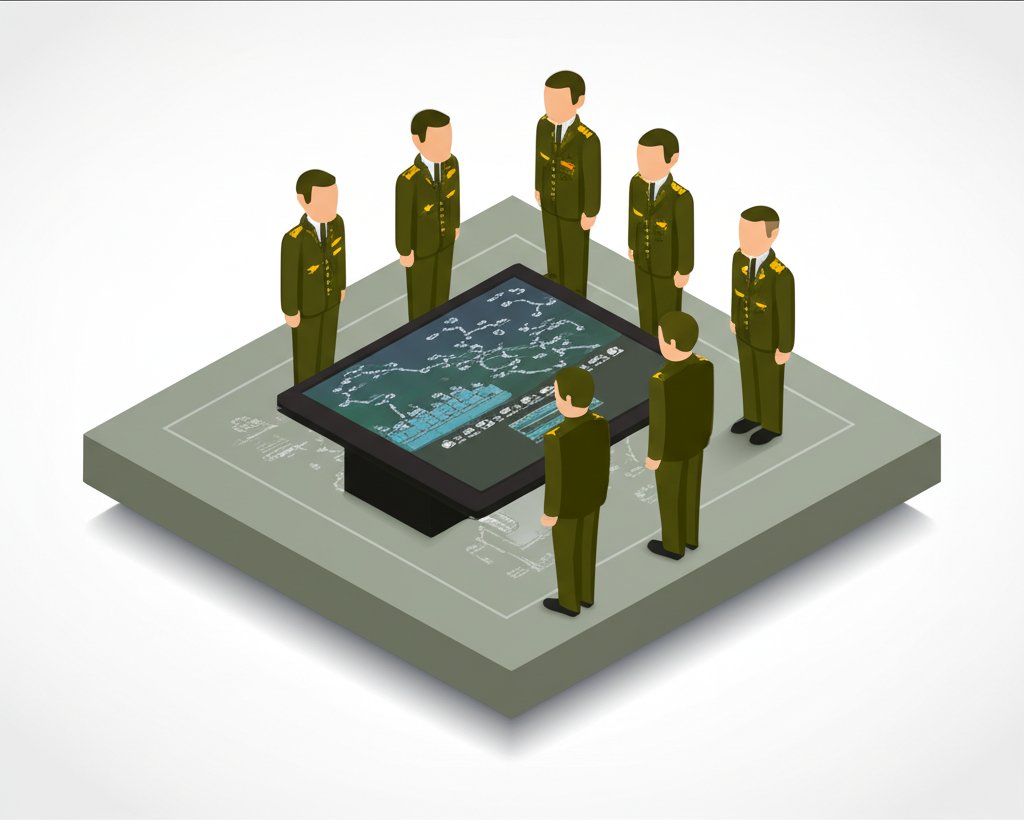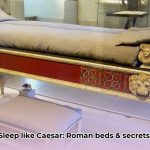In the vast tapestry of history, few narratives captivate the human imagination like the ascent of individuals who, despite facing the direst of circumstances, rise to become titans of their age. Among these extraordinary figures are the self-made military leaders – commanders who, born from humble beginnings, defied societal expectations and conventional paths to carve out unparalleled military success through sheer force of will, intellect, and profound strategic leadership. This article delves into the remarkable journeys of these trailblazers, exploring the specific qualities that propelled them from obscurity to the pinnacle of power, forever altering the course of nations and the art of warfare.
From the arid steppes to the grandest battlefields of Europe, the stories of these leaders serve as a testament to the human spirit’s boundless potential. They are not merely tales of overcoming adversity; they are blueprints for effective leadership, resilience, and the transformative power of a clear vision. Join us as we uncover the secrets behind their enduring legacies and the invaluable lessons their lives offer to aspiring leaders today.
Understanding the characteristics of these commanders provides valuable insights for anyone looking to cultivate their own leadership abilities, mirroring lessons found when studying leaders who rose from the grassroots in various fields.
The Unlikely Ascent: Defining Self-Made Military Leaders
The concept of a “self-made” individual often conjures images of business moguls or innovators. Yet, in the brutal and hierarchical world of military command, the rise from obscurity to ultimate authority is perhaps even more remarkable. These are not merely those who earned promotions; they are individuals whose initial circumstances offered no guarantee of power, whose very entry into the military might have been driven by desperation, and whose education in tactics and strategy was often forged in the crucible of real-world experience rather than esteemed academies.
More Than Just Rank: What “Self-Made” Truly Means
To be considered a self-made military leader is to demonstrate a trajectory where personal initiative, innate talent, and relentless effort were the primary drivers of advancement, not inherited privilege or pre-ordained status. It implies a journey from a position of minimal leverage – whether social, economic, or educational – to one of immense influence and tactical genius. These leaders often started as common soldiers, low-ranking officers, or even civilian figures who, when thrust into military roles, proved their mettle against all odds. Their self-made status is evident in their ability to acquire the complex skills of strategic leadership, build loyal followings, and command vast forces without the traditional advantages of birth or patronage. They represent the ultimate meritocracy, where competence and character trump everything else.
The Crucible of Humble Beginnings: A Foundation for Greatness
For many self-made military leaders, their humble beginnings were not merely a backdrop to their story but a foundational element of their character. Growing up without privilege often instilled in them a profound understanding of hardship, resourcefulness, and the value of hard work. They learned to make do with less, to innovate out of necessity, and to empathize with the common soldier – a quality crucial for inspiring loyalty and morale.
These formative experiences sharpened their instincts for survival, risk assessment, and adaptability. Without the safety net of wealth or political connections, every decision, every battle, and every setback carried higher stakes. This environment forged an unyielding resolve and a pragmatic approach to problem-solving that would prove indispensable on the battlefield. Their lack of traditional military schooling often meant they approached problems with fresh eyes, unconstrained by conventional doctrine, leading to groundbreaking military success through unconventional means.
Pillars of Military Success: Shared Qualities of Unconventional Commanders

Despite their diverse backgrounds and historical contexts, self-made military leaders share a remarkably consistent set of qualities that underpin their extraordinary careers. These traits are not just advantageous; they are often the indispensable bedrock upon which their military success and legendary status are built.
Unwavering Determination and Resilience: The Fight Within
At the core of every self-made military leader is an indomitable spirit. Their paths were invariably fraught with setbacks, defeats, and personal losses. What differentiates them is their unwavering determination to press forward, to learn from every failure, and to view obstacles not as dead ends but as challenges to be surmounted. This resilience allowed them to absorb strategic blows, rally demoralized forces, and maintain their resolve even when the odds seemed insurmountable.
- Learning from Defeat: Instead of being crushed by failure, they meticulously analyzed what went wrong, adapting their tactics and strategies.
- Mental Fortitude: They possessed extraordinary mental toughness, enduring physical privation, political intrigue, and immense pressure without breaking.
- Persistence: Their careers often involved years of relentless effort, constant learning, and a refusal to give up on their objectives, even when others would have quit.
Adaptability and Innovation: Mastering the Shifting Sands of War
The battlefield is a dynamic and unpredictable environment. Traditionalists often falter when faced with unforeseen circumstances, but self-made military leaders thrive on adaptability. Having often risen outside established systems, they were less bound by rigid doctrines and more open to innovative solutions. Their capacity to adjust plans mid-campaign, exploit enemy weaknesses on the fly, and devise entirely new tactics was a hallmark of their strategic leadership.
- Creative Problem-Solving: They thought outside the box, inventing new formations, logistical methods, or intelligence-gathering techniques.
- Rapid Adjustment: The ability to pivot quickly in response to changing intelligence or battlefield conditions was critical.
- Technological Acumen (for their era): They often understood and leveraged the latest military technologies or organizational structures to gain an advantage.
Exemplary Strategic Leadership: Vision Beyond the Battlefield
Beyond tactical brilliance, these leaders possessed a profound capacity for strategic leadership. This wasn’t just about winning a battle; it was about understanding the broader geopolitical landscape, anticipating long-term consequences, and aligning military objectives with political goals. Their vision extended beyond the immediate conflict, encompassing supply lines, political alliances, economic impact, and the morale of both their troops and the populace.
- Long-Term Vision: They could see several moves ahead, planning campaigns that would achieve overarching strategic aims, not just tactical victories.
- Resource Optimization: They were masters at allocating limited resources – manpower, supplies, and time – for maximum strategic effect.
- Political Savvy: Many skillfully navigated complex political landscapes, influencing civilian leaders and securing the necessary support for their campaigns.
Inspiring Charisma and Trust: Leading from the Front
Ultimately, no military leader, self-made or otherwise, can achieve military success without the unwavering loyalty and trust of their troops. Self-made military leaders often possessed a powerful charisma, a magnetic personality that drew followers to their cause. More importantly, they inspired trust through their actions: leading by example, sharing the hardships of their soldiers, and demonstrating genuine concern for their well-being. This created a profound bond that motivated their forces to perform heroic feats under the most trying conditions.
- Leading by Example: They were often found on the front lines, sharing dangers and demonstrating courage.
- Effective Communication: They articulated clear visions and precise orders, ensuring their message resonated deeply with their forces.
- Soldier Empathy: Having often risen from the ranks, they understood the common soldier’s plight, fostering loyalty and dedication.
Historical Architects of Victory: Iconic Self-Made Military Leaders
History provides countless examples of self-made military leaders who, against all odds, rose to dominate their eras. Their stories are not just inspiring; they offer profound insights into the nature of strategic leadership and the path to military success.
Genghis Khan: From Nomadic Warrior to World Conqueror
Born Temüjin, into a nomadic Mongol tribe in a harsh land, Genghis Khan’s early life was marked by extreme hardship, tribal warfare, and betrayal. His father’s murder when he was young left his family destitute, forcing him to hunt and scavenge for survival. Yet, through sheer force of will, political acumen, and military genius, he united the warring Mongol tribes and then embarked on a conquest that would create the largest contiguous land empire in history.
His humble beginnings taught him resilience and a deep understanding of the practicalities of nomadic life, which he leveraged into innovative military tactics, including rapid cavalry movements, feigned retreats, and psychological warfare. His strategic leadership focused on meritocracy, promoting skilled warriors regardless of tribal affiliation, and creating a formidable, disciplined army that redefined warfare in the 13th century.
Joan of Arc: A Peasant Girl’s Divine Military Success
One of the most extraordinary examples of a self-made military leader is Joan of Arc, a French peasant girl from Domrémy, who, despite having no formal military training or noble lineage, convinced the Dauphin to let her lead the French army against the English during the Hundred Years’ War. Her humble beginnings and lack of experience were immediate obstacles, yet her unwavering conviction, inspiring presence, and surprising tactical insights galvanized the French forces.
She lifted the Siege of Orléans, leading to a series of crucial French victories. Her strategic leadership was not born of military academies but from a deep spiritual belief and an uncanny ability to inspire courage and unity. Her story exemplifies how purpose, conviction, and an ability to connect with the common soldier can lead to remarkable military success against overwhelming odds.
Abraham Lincoln: Civilian Strategist, Commander-in-Chief
While not a career soldier, Abraham Lincoln’s journey from a log cabin in Kentucky to the presidency and his role as Commander-in-Chief during the American Civil War makes him a profound example of strategic leadership cultivated from humble beginnings. With only a brief stint as a militia captain in the Black Hawk War, Lincoln was largely a self-taught strategist.
He faced immense initial criticism for his military appointments and strategic decisions. Yet, through relentless study of military theory, a keen understanding of logistics, and an unmatched grasp of the war’s political and moral dimensions, he grew into a masterful commander. His ability to articulate a clear vision for the Union, find and empower effective generals, and make tough strategic calls – such as the Emancipation Proclamation – ultimately secured Union victory and demonstrated a profound capacity for military success under the most trying circumstances. His leadership saved the nation, illustrating that strategic leadership can emerge from unexpected places.
Ulysses S. Grant: Perseverance Through Humble Beginnings
Ulysses S. Grant, though a West Point graduate, experienced significant personal and professional failures before the Civil War. His humble beginnings after leaving the army involved unsuccessful ventures in farming, real estate, and leather goods, leaving him nearly destitute. It was only with the outbreak of war that his latent military genius was truly unleashed.
Starting as a colonel, his perseverance, unwavering resolve, and pragmatic, aggressive strategic leadership led him to a series of critical victories in the Western Theater, earning him the nickname “Unconditional Surrender” Grant. His ability to understand the enemy’s mindset, maintain relentless pressure, and endure heavy losses while keeping his strategic objective in sight propelled him to command of all Union armies and ultimately, victory. Grant’s story is a compelling narrative of how past failures and humble beginnings can paradoxically forge an unyielding spirit necessary for ultimate military success.
Marshal Zhukov: Soviet Strategic Leadership Forged in Crisis
Georgy Zhukov, born to a peasant family in rural Russia, rose through the ranks of the Red Army from a conscript cavalryman to one of the most celebrated and crucial commanders of World War II. His humble beginnings and lack of formal higher education did not impede his ascent; rather, his raw talent, iron will, and brutal pragmatism were honed in the harsh realities of early 20th-century Russia and the crucible of the Eastern Front.
Zhukov was known for his meticulous planning, decisive action, and willingness to employ massive, concentrated forces to achieve breakthroughs. His strategic leadership was pivotal in nearly every major Soviet victory, from defending Moscow and Stalingrad to leading the final assault on Berlin. He proved to be a master of operational planning and logistics on an unprecedented scale, transforming the Soviet war effort and achieving immense military success against the formidable German war machine.
The Profound Impact: How Self-Made Military Leaders Reshape Warfare and Society

The influence of self-made military leaders extends far beyond the battlefields where they earned their fame. Their rise often catalyzes profound changes in military doctrine, societal structure, and political landscapes.
Revolutionizing Military Strategy and Tactics
Unburdened by rigid traditions, self-made military leaders frequently became innovators. They questioned conventional wisdom, developed new operational concepts, and challenged the very nature of warfare. This often led to revolutionary advancements that altered how wars were fought for generations.
- New Formations and Maneuvers: From Genghis Khan’s mobile cavalry tactics to Napoleon’s corps system, these leaders constantly evolved the methods of engagement.
- Logistical Innovations: Many understood that armies march on their stomachs and pioneered new ways to supply and sustain large forces over vast distances.
- Integrated Warfare: They often grasped the importance of combining different military branches (infantry, cavalry, artillery) into a cohesive, highly effective fighting force.
Fostering Meritocracy and Opportunity in the Ranks
One of the most significant impacts of self-made military leaders is the challenge they posed to aristocratic or class-based military establishments. Their very existence demonstrated that competence, not birthright, was the true measure of a commander. This often led to reforms that opened up opportunities for talented individuals from all social strata, transforming militaries into more meritocratic institutions.
- Promotion Based on Skill: They often disregarded noble lineage in favor of promoting officers based on demonstrated battlefield performance and leadership potential.
- Inspiring the Common Soldier: Seeing someone from a similar background rise to the top instilled hope and motivation in lower ranks, fostering loyalty and ambition.
- Breaking Down Barriers: Their careers proved that the highest echelons of power were accessible to anyone with sufficient ability and drive, regardless of their humble beginnings.
Beyond the Battlefield: Driving Social and Political Change
The influence of these commanders frequently transcended military matters, spilling over into the political and social spheres. Many, having experienced injustice or inequality firsthand, used their platforms to advocate for broader societal changes.
- Political Reforms: Some self-made military leaders went on to become influential political figures, enacting reforms that benefited the common people or restructured governance.
- Challenging Social Norms: Their rise often served as a powerful symbol against rigid class structures, inspiring movements for greater equality and opportunity.
- National Identity: In many cases, these leaders became national heroes, galvanizing national identity and pride, particularly in emerging or struggling nations.
Lessons for Aspiring Leaders: Cultivating Strategic Leadership Today
The stories of self-made military leaders are far more than historical anecdotes; they are rich repositories of wisdom, offering profound insights for anyone aspiring to excel in leadership roles, whether in the military, business, or community. Their journeys underscore that strategic leadership is not a born talent but a cultivated skill, often sharpened by adversity.
Embracing Adversity as a Catalyst for Growth
The recurring theme in the lives of these powerful military leaders is their confrontation with and overcoming of immense challenges. For modern aspirants, this translates into a powerful lesson: do not shy away from difficulty. Instead, embrace it as a learning opportunity. Each setback, failure, or period of struggle from humble beginnings can be a crucible that refines character, sharpens decision-making, and builds resilience.
- Seek Challenges: Actively pursue roles or projects that push you beyond your comfort zone.
- Reflect and Learn: After every failure or success, take time to analyze what happened, what you did well, and what you could improve.
- Build Mental Toughness: Develop coping mechanisms for stress and pressure, understanding that resilience is a muscle that strengthens with use.
The Power of Continuous Learning and Self-Development
Many self-made military leaders were voracious learners, whether through formal education, extensive reading, or direct experience. They understood that knowledge was power, and they tirelessly sought to master their craft. For today’s leaders, this means committing to lifelong learning.
- Diverse Reading: Read widely across various subjects – history, philosophy, business, science – to broaden your perspectives and deepen your understanding of the world.
- Mentorship: Seek out mentors who can provide guidance, share their experiences, and challenge your thinking.
- Skill Acquisition: Continuously develop new skills, whether technical, interpersonal, or conceptual, to stay relevant and effective.
Building an Unshakeable Vision and Communicating It Effectively
A hallmark of great strategic leadership is the ability to articulate a compelling vision and inspire others to follow it. Self-made military leaders often had a clear purpose, born from their experiences, which they could communicate with passion and clarity, driving their troops towards military success.
- Define Your Purpose: Understand your core values and objectives. What future are you trying to create?
- Articulate Clearly: Practice communicating your vision in a way that is inspiring, understandable, and actionable for your team.
- Lead by Example: Your actions must always be consistent with your words and vision to build trust and credibility.
Actionable Steps Towards Personal and Military Success
Drawing directly from the experiences of these formidable figures, here are actionable steps for cultivating your own strategic leadership:
- Cultivate Resourcefulness: Learn to achieve objectives with limited resources. Think creatively, find unorthodox solutions, and never assume you have all the tools you need.
- Practice Decisive Action: In military conflicts and beyond, hesitation can be fatal. Develop the ability to gather information quickly, weigh options, and make timely decisions, even under pressure.
- Prioritize Followership: Understand that leadership is a two-way street. Invest in your team, build strong relationships, and earn their trust through empathy and consistent performance.
- Embrace Responsibility: Take full ownership of your decisions and their outcomes, both successes and failures. This builds respect and sets a powerful example.
- Develop Foresight: Practice thinking strategically. Look beyond immediate issues to anticipate future challenges and opportunities, and plan accordingly.
Conclusion
The rise of self-made military leaders from humble beginnings to positions of immense strategic power offers some of the most compelling narratives in human history. Their journeys are a profound testament to the power of individual will, the transformative potential of adversity, and the enduring qualities of effective strategic leadership. They proved that military success is not solely the domain of the privileged few, but rather a prize attainable through unparalleled determination, adaptability, and the ability to inspire others.
By studying these remarkable men and women, we gain invaluable insights into resilience, innovation, and the art of command. Their legacies continue to shape our understanding of leadership, reminding us that with unwavering spirit and a commitment to continuous growth, anyone can defy expectations and leave an indelible mark on the world. Let their stories inspire you to embrace your own challenges, cultivate your unique strengths, and forge your path to impactful leadership.
FAQ
Q1: What defines a “self-made military leader” compared to other military leaders?
A1: A self-made military leader is typically an individual who rose to prominence and achieved significant military success despite beginning with few traditional advantages, such as noble birth, wealth, or a pre-established military career path. Their ascent is largely attributed to their personal determination, strategic acumen, and ability to overcome humble beginnings, rather than inherited status or patronage. They often prove their worth through exceptional performance in the field, challenging existing hierarchies.
Q2: How do humble beginnings specifically contribute to the development of these leaders?
A2: Humble beginnings often instill critical traits like resilience, resourcefulness, and a strong work ethic. Leaders from such backgrounds tend to have a deeper understanding of hardship, which can foster empathy for their troops and a pragmatic approach to problem-solving. They learn to innovate with limited resources, adapt quickly to change, and possess an unyielding determination to succeed, as failure often carried more severe consequences in their early lives.
Q3: What role does strategic leadership play in their military success?
A3: Strategic leadership is paramount for self-made military leaders. It goes beyond winning individual battles, encompassing the ability to understand the broader political and logistical landscape, anticipate long-term consequences, and align military actions with overarching objectives. Their strategic vision allows them to orchestrate complex campaigns, manage resources effectively, and make high-stakes decisions that contribute to sustained military success and shape the course of entire conflicts.
Q4: Can you provide examples of self-made military leaders who significantly impacted military strategy?
A4: Absolutely. Genghis Khan, despite his humble beginnings, revolutionized warfare with his innovative cavalry tactics and logistical organization. Napoleon Bonaparte, from a modest Corsican family, developed the modern corps system and pioneered rapid maneuver warfare. Marshal Zhukov, a peasant’s son, mastered operations on an immense scale, demonstrating unprecedented strategic leadership in World War II. These leaders often broke from conventional military thought, leading to new doctrines and methods that shaped warfare for centuries.
Q5: What lessons can modern aspiring leaders draw from the lives of self-made military leaders?
A5: Modern leaders can learn several invaluable lessons:










